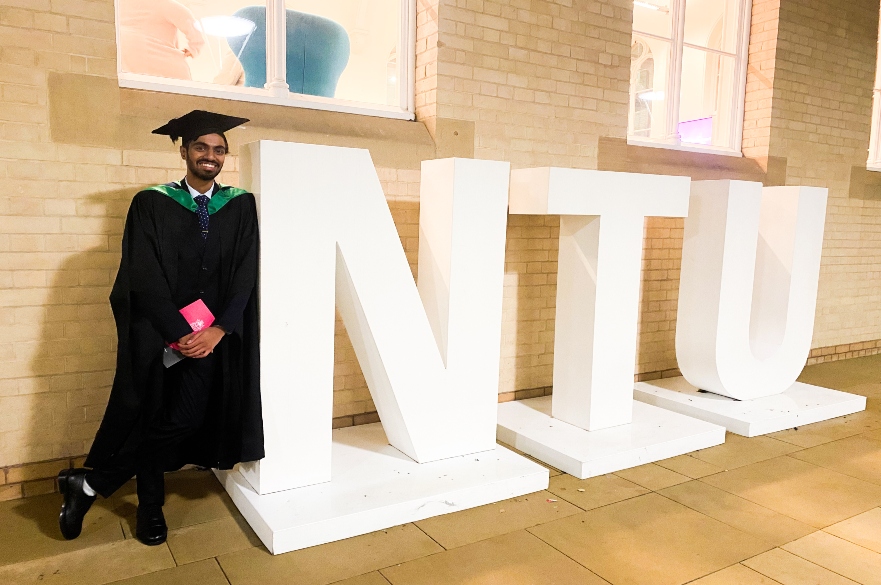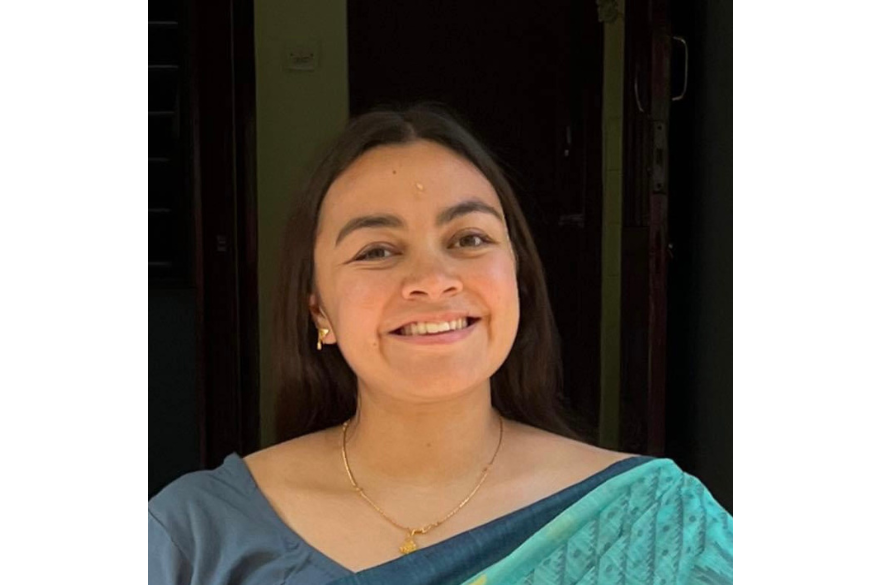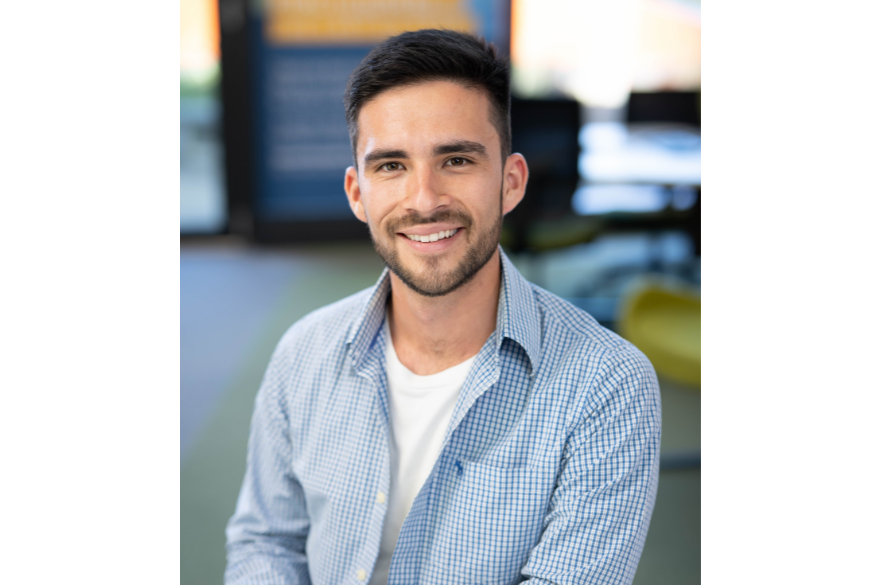More about Sebastian Mora
In the dynamic world of sports science, where the boundaries between disciplines blur, Sebastian Mora Hernandez stands as a testament to the versatility and impact of postgraduate education. Sebastian studied BSc Sport and Exercise Science and completed his MRes Sport Science at NTU in 2022.
Since then he has forged a meaningful career path that seamlessly merges physiology, psychology, and clinical practice. Sebastian is currently an Exercise Oncology Researcher at University Hull with the Hull York Medical School.
His commitment extends beyond just research; he actively contributes to society by improving the quality of life and survival outcomes for those affected by cancer through exercise.
Sebastian's decision to pursue the MRes in Sport Science at NTU was driven by a desire to deepen his knowledge and keep avenues open for both sports and clinical settings:
Sebastian: I wanted to complement my practice with further knowledge. At the same time, I wanted to keep my doors open to work in sport as well as to work in a clinical setting. The MRes Sport Science allowed me to combine more than just one discipline - physiology with psychology, which was ideal for my future plans.
Throughout the course, Sebastian found himself engaged in various topics and was particularly excited by the opportunity to delve deep into his dissertation on dyspnoea:
Sebastian: The lecturing and support staff were great throughout, making themselves available whenever I needed them. The highlight of the entire course was definitely being able to shape my dissertation exactly how I wanted it with my supervisor supporting me all throughout.
Outside the lecture halls, he wore multiple hats that have supplemented his studies:
Sebastian: Having my own sports consultancy alongside working as a Personal Trainer during my studies allowed me to immediately apply those concepts to practice. I was also able to shape my own triathlon training based on the concepts that I was learning each week.
Sebastian's career trajectory took an unexpected turn towards Exercise Oncology. Reflecting on visa challenges faced during his postgraduate studies, he dives into how the academic journey at NTU equipped him for his current role:
Sebastian: My objective with the MRes was to start working as a Physiologist. The course equipped me with a variety of skills but most importantly, with lots of experience in a slightly more clinical setting during the practice in respiratory physiology lab.
Whilst I was doing the course, I was working at Nuffield Health and the idea was to progress to a Physiologist position. However, due to visa restrictions that wasn’t possible, so I quickly moved on to looking for other options. I saw the opening for my current position and it was a direct match straight away. It fulfilled my objectives and goals. It also aligned very well with my dissertation topic as one of the populations that I work with is lung cancer survivors.
When we asked what attracted him to this field of work...
Sebastian: Exercise oncology really came unexpectedly. Even though I always keep my doors open in regards to clinical practice, I saw myself working in cardiovascular disease or diabetes but never even considered working with patients living with and beyond cancer. However, as I was coming to the end of my MRes, I saw the position opening and the job description just made a lot of sense for me. It was as if it was tailor made to my aspirations even though I didn’t see it coming.
He shared a glimpse into a typical day in his current role:
Sebastian: My research area is Exercise Oncology and with my team, we focus on researching remote based, personalised interventions to improve survival and quality of life outcomes for those living with and beyond cancer.
My days are very varied. Some days I might be behind the screen analysing data from wearables and different trackers or doing qualitative analysis from interviews with patients about a particular intervention. Other days I could spend all day in the hospital going around the different clinics recruiting volunteers. Some other days I might be jumping from call to call speaking to patients and delivering coaching behavioural interventions as part of some of our studies.
Reflecting on challenges faced during his postgraduate studies, Sebastian points to the delicate balance required between coursework and his job outside MRes:
Sebastian: I had two big challenges. The first one was actually balancing all my course work with the jobs that I had outside the MRes. I overcame this by really working on my organisational skills and finding what worked best for me with the support of my supervisor. The second one was actually hitting the recruitment mark that we set for my dissertation. After months struggling to recruit enough participants, we realised that the original target was unrealistic, so we had to tweak the project slightly and its original methodology to allow me to present results on time. Once again, I did this with the support of my supervisor and other students involved in the project.
These help me prepare for work, providing me with an understanding of how research really works and the different processes to be followed. They also gave me the critical skills and knowledge to overcome some of the challenges that I face in my daily practice, like difficulty recruiting volunteers for my research.
Reflecting on his time at NTU, Sebastian commends the unwavering support from staff members who played a pivotal role in his journey:
Sebastian: NTU definitely had an impact. Every single staff member that I came across made an impact of some sort. Even before enrolling, when I was still choosing which course to do and my dissertation topic. All the different staff members made themselves very available and were extremely supportive.
Adjusting to post-pandemic life and joining the course from another country presented initial challenges:
Sebastian: Given that it was the year post-pandemic and that I started the course from outside the country, I did struggle at the beginning. However, as time went by, I found people that I really connected with.
Looking ahead at emerging trends in sport science:
Sebastian: In Sport Science, there is a significant interest in healthy aging and the recognition of exercise as medicine.
On the most useful skills and knowledge Sebastian learned during his postgraduate studies:
- Research skills
- Clinical and professional skills
- Critical analysis
Words of wisdom: If you had a time machine, what would you tell your student-self?
Sebastian: Get the most out of it. Time flies by. Get as much experience, knowledge and skills as possible but also remember that your fellow students will be your future colleagues… So, network.
Beyond academia, Sebastian finds joy in exercising, outdoor activities, and board games—showcasing a well-rounded personality beyond his professional pursuits.
You can follow Sebastian's journey beyond his studies on social media:
LinkedIn: Sebastian Mora Hernandez
Still need help?
-

STUDENT PROFILE
Ajay Konuri
Medical ImagingIndia
https://www.ntu.ac.uk/study-and-courses/courses/our-students-stories/science-technology/ajay-konuri
-

STUDENT PROFILE
Anya Whitham
United Kingdom
https://www.ntu.ac.uk/study-and-courses/courses/our-students-stories/science-technology/anya-whitham
